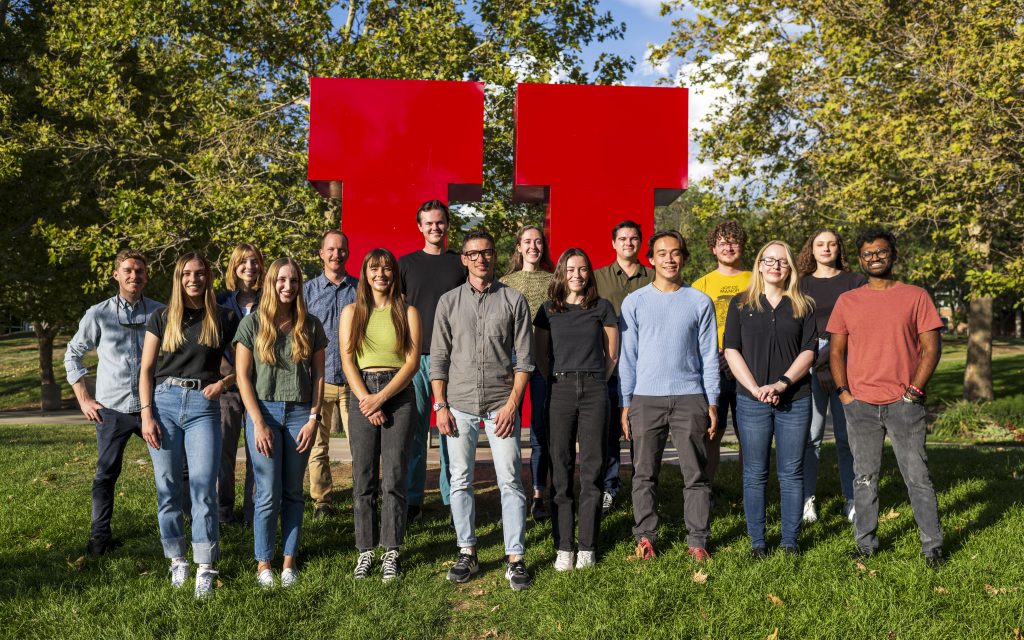
Principal Investigator
Tommaso Lenzi, PhD
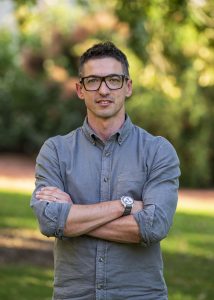 Biography
Tommaso Lenzi received the MS degree in Biomedical Engineering from the University of Pisa in 2008, and the Ph.D. degree in BioRobotics from Scuola Superiore Sant’Anna in 2013. He is currently an Associate Professor in the Department of Mechanical Engineering at the University of Utah, a Core Faculty in the Utah Robotics Center, and the Director of the Ergonomics and Safety Program at the Rocky Mountain Center for Occupational and Environmental Health. Previously, he was Research Scientist at the Rehabilitation Institute of Chicago (2015-2016), and a Postdoctoral Fellow at Northwestern University (2013-2014). He is a member of IEEE, the Robotics and Automation Society (RAS), and the Engineering in Medicine and Biology Society(EMBS). Dr. Lenzi has co-authored more than 80 peer-reviewed scientific publications, three book chapters, and 13 patents. He serves as Associate Editor for IEEE Robotics and Automation Letters, the International Conferences on Rehabilitation Robotics (ICORR), and Biomedical Robotics and Biomechatronics (BIOROB). His main research interests include robotics, mechatronics, and rehabilitation medicine with a major emphasis on the design and control of wearable robots for human assistance and rehabilitation. Outside academia he enjoys spending time with his wife and two children, playing soccer, riding his Ducati, and playing his Gibson Studio.
Biography
Tommaso Lenzi received the MS degree in Biomedical Engineering from the University of Pisa in 2008, and the Ph.D. degree in BioRobotics from Scuola Superiore Sant’Anna in 2013. He is currently an Associate Professor in the Department of Mechanical Engineering at the University of Utah, a Core Faculty in the Utah Robotics Center, and the Director of the Ergonomics and Safety Program at the Rocky Mountain Center for Occupational and Environmental Health. Previously, he was Research Scientist at the Rehabilitation Institute of Chicago (2015-2016), and a Postdoctoral Fellow at Northwestern University (2013-2014). He is a member of IEEE, the Robotics and Automation Society (RAS), and the Engineering in Medicine and Biology Society(EMBS). Dr. Lenzi has co-authored more than 80 peer-reviewed scientific publications, three book chapters, and 13 patents. He serves as Associate Editor for IEEE Robotics and Automation Letters, the International Conferences on Rehabilitation Robotics (ICORR), and Biomedical Robotics and Biomechatronics (BIOROB). His main research interests include robotics, mechatronics, and rehabilitation medicine with a major emphasis on the design and control of wearable robots for human assistance and rehabilitation. Outside academia he enjoys spending time with his wife and two children, playing soccer, riding his Ducati, and playing his Gibson Studio.
Research My research focuses on the intersection of robotics, design, control, and biomechanics. My primary research interests are related to optimizing the dynamics of human-robot cooperation within the context of physical disability. I aim to discover novel transformative design and control solutions that will allow individuals with physical disabilities to recover natural movement ability at home and in the community. Rather than focusing on the impaired biological counterpart and trying to imitate its mechanics with a non-biological device, my research explores non-biomimetic solutions that can build upon the residual, non-impaired abilities of a person, while leveraging on the strengths of artificial technologies such as mechanism, sensors, and feedback control.
Teaching Fall 2017/Fall 2018/Fall 2021: Dynamic Systems and Control (ME EN 3220) Spring 2018/Fall 2020/Fall 2022: Wearable Robotics (ME EN 7960-004) Spring 2019/Spring 2020/Spring 2021: Advanced Mechatronics (ME EN 6240)Research Scientist
Lukas Gabert, Ph.D.
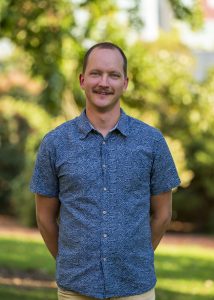 Lukas Gabert received his bachelor’s degree from the New Mexico Institute of Mining and Technology in 2016 and a Ph.D. in Mechanical Engineering from the University of Utah in 2022. Lukas has extensive experience in the design, development, and testing of wearable robots. His passion lies at the intersection of mechanical design, embedded systems, and controls. Outside of academia, he likes to spend time outdoors, travel, and eat tasty food.
Lukas Gabert received his bachelor’s degree from the New Mexico Institute of Mining and Technology in 2016 and a Ph.D. in Mechanical Engineering from the University of Utah in 2022. Lukas has extensive experience in the design, development, and testing of wearable robots. His passion lies at the intersection of mechanical design, embedded systems, and controls. Outside of academia, he likes to spend time outdoors, travel, and eat tasty food.
Postdoctoral Scholars
Rosemarie Murray, Ph.D.

Rosemarie Murray received her Bachelor of Science degree in 2016 and her Ph.D. in Mechanical Engineering in 2022 both from Columbia University, where she developed new designs for powered exoskeletons for postural control. In addition to robotics, she maintains an active interest in dance, martial arts, and somatic movement.
Google ScholarPh.D. Students
Dante Archangeli
Marissa Cowan
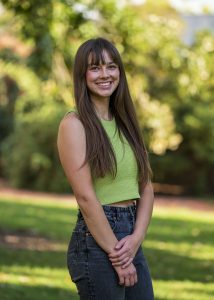
Marissa Cowan is a Mechanical Engineering Ph.D. student in the Bionic Engineering Lab at the University of Utah. She received her B.S. in Bioengineering from the University of Illinois in 2022. During her undergraduate studies, she interned at PSYONIC, a prosthetic company that designs and manufactures upper-limb prosthetics. There, she discovered her passion for helping others through engineering life-changing devices. Outside of the lab, Marissa enjoys climbing, mountain biking, and snowboarding.
LinkedInAndy Gunnell
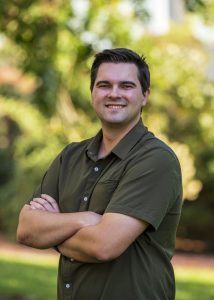
Andy Gunnell is a Ph.D. student in Mechanical Engineering, who joined the Bionic Engineering Lab in 2019 as an undergraduate research student after winning a UROP scholarship and received his B.S. degree from the University of Utah in 2020. Andy’s research focuses on studying wearable robotics and exoskeletons and their biomechanical effects on lower-limb amputees and stroke victims. After completing his Master’s, Andy plans on pursuing a Ph.D. with the lab. Outside of work, Andy enjoys fishing, golfing, watching sports, and playing video games.
Email: Andy(dot)Gunnell(at)utah(dot)edu Google ScholarGrace Hunt
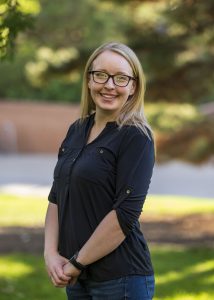
Email: grace(dot)hunt(at)utah(dot)edu
LinkedIn Google ScholarJesse Prime
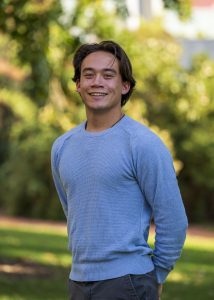
Jesse is a Ph.D. student at the University of Utah.
Kai Pruyn

Kai Pruyn is an PhD student studying Mechanical Engineering at the University of Utah. She joined the Bionic Engineering Lab after participating in the ACCESS program for women in STEM. Her interests are in the design and function of prosthetic devices. Kai is originally from Reno, Nevada, and enjoys biking, swimming, and reading when she has free time.
Google ScholarBrendon Ortolano
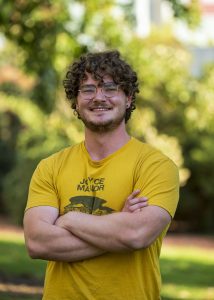
Brendon is a Mechanical Engineering Ph.D. student in the Bionic Engineering Lab. He received a B.S. in Mechanical Engineering from the University of West Florida in 2021. During his undergraduate education, he interned at the Institute for Human and Machine Cognition, where he had the opportunity to develop hardware and software for the Quix exoskeleton and novel perception, mapping, and tracking methods for humanoid robots, rovers, and watercraft. Brendon’s interests include the design, control, and validation of lower-limb powered exoskeletons for disabled populations. Outside of academia, he likes to boulder, hike, and watch movies.
Google ScholarLiam Sullivan
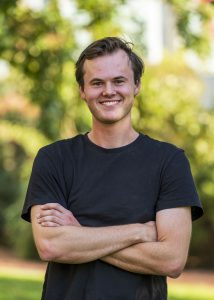
Clare Severe

Clare is a Ph.D. student in Biomedical Engineering at the University of Utah.
Vishnu Aishwaryan Subra Mani
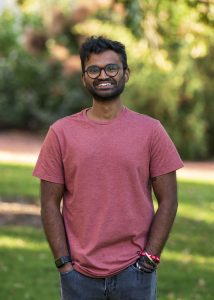 Vishnu is a Ph.D. student in Mechanical Engineering at the University of Utah.
Vishnu is a Ph.D. student in Mechanical Engineering at the University of Utah.
Master Students
Margaret Meagher
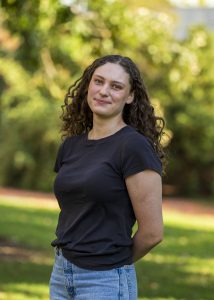 Margaret is a Master student in Mechanical Engineering at the University of Utah.
Margaret is a Master student in Mechanical Engineering at the University of Utah.
Collaborators
Kenneth Bo Foreman, PT, Ph.D. (Co-Director, Motion Analysis Core, University of Utah)
 Kenneth “Bo” Foreman received his B.S. in Physical Therapy in 1994 and his Ph.D. in Anatomy in 2005 from the University of Utah. As a faculty member in the Department of Physical Therapy, an adjunct faculty member in the Department of Orthopaedics and Mechanical Engineering, and as the Director of the Motion Analysis Core Facility (MoCap), Dr. Foreman has led multiple studies analyzing balance, postural control, and clinical outcome measures as a means of documenting alterations or improvements in movement and function. His background is in biomechanical analyses of movement and a variety of clinical populations prepares me well for this project.
Kenneth “Bo” Foreman received his B.S. in Physical Therapy in 1994 and his Ph.D. in Anatomy in 2005 from the University of Utah. As a faculty member in the Department of Physical Therapy, an adjunct faculty member in the Department of Orthopaedics and Mechanical Engineering, and as the Director of the Motion Analysis Core Facility (MoCap), Dr. Foreman has led multiple studies analyzing balance, postural control, and clinical outcome measures as a means of documenting alterations or improvements in movement and function. His background is in biomechanical analyses of movement and a variety of clinical populations prepares me well for this project.
K. Bo FOREMAN, PhD, PT – Research – Faculty Profile – The University of Utah
Jake George, Ph.D. (Director, NeuroRobotics Lab, University of Utah)
Jacob A. George received his B.S. in Biomedical Engineering and a Certificate in Computational Science and Engineering from The University of Texas at Austin in 2016. George graduated with Highest Honors and was the sole recipient of the Biomedical Engineering Student Leadership Award for his contributions to his department as President of the Biomedical Engineering Honor Society. He then received his M.S. and Ph.D. in Biomedical Engineering from the University of Utah in 2018 and 2020, respectively. At Utah, George served as the Co-President of the Graduate Student Advisory Committee and Inaugural President of the IEEE Engineering Medicine and Biology Student Chapter.


